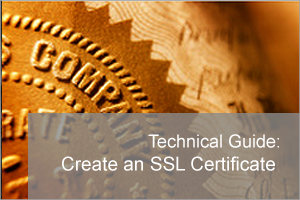11
Nov
What’s happened to my archiving jobs? MailStore Server v9.0
 If you've recently made the move to MailStore version 9, it's entirely possible you'll be sat there wondering why on earth all of those archiving jobs you had set up can't be modified any more.
You'll hopefully be pleased when I tell you it's not a mistake and nothing's gone dramatically wrong, it's just that MailStore are now adopting a new and far more efficient way of automating jobs that no longer needs the old Windows task scheduler method.
If you've recently made the move to MailStore version 9, it's entirely possible you'll be sat there wondering why on earth all of those archiving jobs you had set up can't be modified any more.
You'll hopefully be pleased when I tell you it's not a mistake and nothing's gone dramatically wrong, it's just that MailStore are now adopting a new and far more efficient way of automating jobs that no longer needs the old Windows task scheduler method.


 October, as you'll probably know, is the unofficial 'silly season' for IT gatherings in the UK.
It's around this time each year, vendors, exhibition companies and industry bodies go all out competing for the attention of the IT support companies and MSP's they'd like at their events.
October, as you'll probably know, is the unofficial 'silly season' for IT gatherings in the UK.
It's around this time each year, vendors, exhibition companies and industry bodies go all out competing for the attention of the IT support companies and MSP's they'd like at their events.
 Configuring any Web service to work over HTTP using SSL is a good idea.
We certainly recommend it for BackupAssist's Multi-site Manager (BAMM) and in this post I'll show you how to create an SSL certificate you can then bind this kind of service to.
Configuring any Web service to work over HTTP using SSL is a good idea.
We certainly recommend it for BackupAssist's Multi-site Manager (BAMM) and in this post I'll show you how to create an SSL certificate you can then bind this kind of service to.
 If you have recently upgraded to MailStore version 9 you may not be aware that the new maximum number of messages that an archive can contain has now been increased from 500,000 to 5,000,000 messages.
If you are like me and you have found yourself with a collection of much smaller MailStore message archives it is now much easier to merge these together into a smaller number of larger archives.
If you have recently upgraded to MailStore version 9 you may not be aware that the new maximum number of messages that an archive can contain has now been increased from 500,000 to 5,000,000 messages.
If you are like me and you have found yourself with a collection of much smaller MailStore message archives it is now much easier to merge these together into a smaller number of larger archives.
 The launch of the latest and greatest version of MailStore Server was announced today by the German vendor.
Version 9 boasts a long list of fantastic improvements for both end users and administrators alike - our pick of the bunch include the following...
The launch of the latest and greatest version of MailStore Server was announced today by the German vendor.
Version 9 boasts a long list of fantastic improvements for both end users and administrators alike - our pick of the bunch include the following...
 If you have ever suspected that a slow performing server is down to slow access to a hard drive you may have started searching the web for a tool to help diagnose the root of the problem.
What you might not know is that Windows has a very handy built-in tool for doing just that and can provide some excellent real-time statistics.
If you have ever suspected that a slow performing server is down to slow access to a hard drive you may have started searching the web for a tool to help diagnose the root of the problem.
What you might not know is that Windows has a very handy built-in tool for doing just that and can provide some excellent real-time statistics.
 Cloud, private-cloud, multi-tennant, hosted, SaaS, service provider, xSP - the myriad of terminology used to describe products such as
Cloud, private-cloud, multi-tennant, hosted, SaaS, service provider, xSP - the myriad of terminology used to describe products such as